Kashmir: Wake up Pakistan
September 18, 2010 2 Comments
The Kashmir Youth Movement for the liberation of Kashmir is gathering strength by the day. It has, by now, continued for more than three months. More than 100 young men have given the supreme sacrifice of losing their lives.
Brutal repression including curfews and siege of homes, mosques, schools, hospitals and bazaars, besides point blank shooting of protesting teenagers, has failed to stop the indigenous uprising. In fact, it has further boosted it. What has all the more irked the Indian government is the way the world is beginning to take notice of the flagrant violation of human rights and unabashed use of force. New Delhi has further come under pressure from the voices rising within India against the oppression inflicted on the protesting people. In this context, Prime Minister Manmohan Singh says that he is deeply worried and distressed. Sometime back he had advised the Indian security forces to deal with the protesting youth humanely. But his advice and concern fell flat on the army and the police. Then much was expected from the all parties post-Eid conference. The meeting did take place without arriving at any meaningful decision.
Even the Armed Forces Special Powers Act (AFSPA) was not withdrawn, despite an appeal by Chief Minister Omar Abdullah. And all that the conference yielded was a move to send a fact-finding group to the “occupied” state. In other words, the meeting was a damp squib.
Although the international media has woken up to the unresolved decades-old festering problem in Kashmir, there is a little of positive reaction on the part of major world powers. This almost criminal neglect is mainly due to the influence India increasingly wields internationally. Indeed, the international community overwhelmingly accords more importance to their economic and strategic interests than human rights and state excesses. (Washington’s latest statement about the nature of the current resistance in Kashmir is totally disappointing).
Linked to these considerations is the general feeling after Nine Eleven, in the world capitals that agitations or uprisings even for legitimate causes should be discouraged or ignored, as such activities could grow into acts of terrorism and violent behaviour. But in the case of Kashmir – India’s 63 years of occupation, holding of fake elections in the occupied territory, preventing and repulsing of Pakistani attempts to intervene (particularly after the Kargil misadventure), plus the rising stature of the so-called largest democracy with its rapidly burgeoning economy, as well as mounting military prowess – all these factors have served to consolidate its stand on the disputed state.
Till the start of the current movement, India had also managed to convince the international community that the resistance in Kashmir was engineered, to a large extent, by Pakistan. However, this is no longer the case. It is recognised that the present demonstration of the Kashmiris’ struggle is not only totally local and indigenous, but it is also more or less peaceful. The only weapon used by the youth during their protests is pebbles and small stones. It is generally accepted that the intensity, continuity and spreading agitation and unrest has turned it into a formidable challenge for the Indian government.
What indeed is disconcerting is the attitude of the Pakistani government. It has been mostly rhetorical, lacking substance and seriousness of purpose. A few statements have come from the President, Prime Minister, Foreign Minister and the opposition leaders. Even the National Assembly’s Parliamentary Committee on Kashmir, has not met. The civil society too has been slow and lukewarm in expressing its concern.
On the other hand, for the first time the Indian society is stirred up and the government has come under severe criticism for its inhuman and unacceptable conduct in the occupied state. Not only are known human rights activists like Arundhati Roy highlighting India’s criminal conduct, but also columnists like Kuldip Nayar are openly asking India to hold talks with the Pakistani and Kashmiri leaders to resolve the issue. Mention may here be made of the statement issued by The Indian People’s Union for Democratic Rights (PUDR) which has also condemned the Indian authorities for inflicting “collective punishment” on the Kashmiri people. One may further quote from a recent The Hindu editorial: “By talking big while having little to offer, New Delhi has unwittingly fanned the flames in J&K….Jammu and Kashmir is poised on the edge of an abyss. Firm, generous-spirited action to win over the people is needed, not post-dated promises and grandstanding.”
Hopefully, the new trail blazed by the brave Kashmiri young men should jolt the so-called ultra liberals and peaceniks’ of Pakistan to realise that Kashmir is vital for Pakistan’s economy and even survival. Although they never tire of referring to Quaid-i-Azam’s August 11 speech; however, they remain shy of recalling his perception of Kashmir as the “jugular vein” of Pakistan. Can one ignore India’s building of dozens of dams on the rivers flowing into Pakistan from Kashmir?
Pakistan, as a “party” to the question of the disputed state, has obligations to discharge, especially when the other party has turned the state into a veritable hell by posting lakhs of trigger-happy security forces there. Read more of this post




























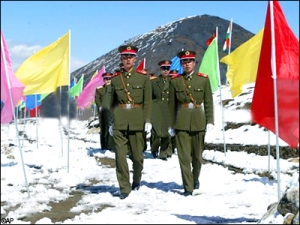





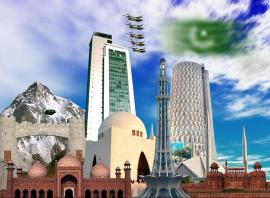
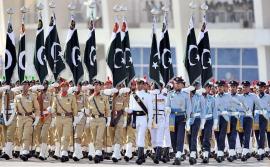

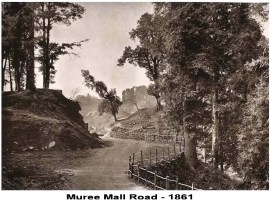
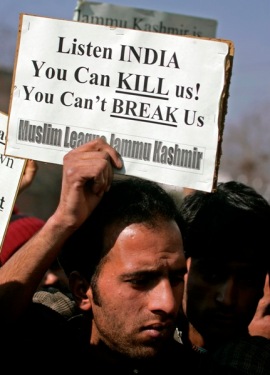




























Recent Comments